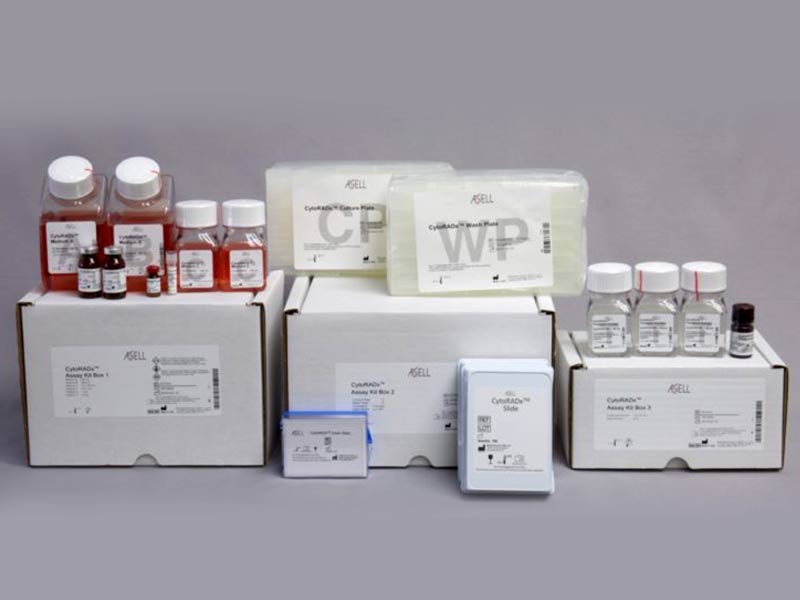ASELL is dedicated to tackling some of the toughest public health security challenges. With our best-in-class partners, we prioritize addressing operational and performance needs, ensuring our products are responsive to the demands of real-world applications. Our technologies will enhance national preparedness to respond to nuclear disasters and biological threats.
Enhancing Emergency Preparedness for Radiation Mass Casualty Events
Following a mass-casualty radiological or nuclear disaster, there will be a critical need to test many hundreds of thousands of people to determine their level of radiation exposure. Emergency responders will need to quickly and easily discriminate those with different levels of exposure to support appropriate treatment. Those with very low exposures may require no immediate intervention, while those with moderate to high doses will likely benefit from near-term medical intervention with antibiotics and growth factors, and those with very-high doses may require aggressive treatment or palliative care. The US government has been enhancing the national capability to support such a crisis through the development of biodosimetry technologies. ASELL is actively partnering with the emergency response community to develop both triage and confirmatory biodosimetry tools. These tools will provide ability to rapidly triage patients and characterize exposure levels and enable effective prioritization of scarce resources.
CellRADx™ – Triage Biodosimetry
After a large-scale radiation incident, emergency responders will triage potentially exposed individuals to determine which individuals will require additional testing. Rapid triaging of casualties is a key component of the public health and medical response to guide treatment, preserve scarce resources, and alleviate public concern. Currently, no diagnostic tool is available to quickly identify persons that need acute medical care following a large scale radiation incident. ASELL is collaborating with the Armed Forces Radiobiology Research Institute (AFRRI) to develop the CellRADx biodosimetry system, which use uses hematological data and biodosimetry algorithms to provide early diagnostic information. This approach will enable the initial management of radiation casualties in triage settings. For further information, check out a recent briefing that was provided at the 2025 Military Health System Research Symposium (MHSRS) in Orlando, Florida by Dr. William F. Blakely from AFRRI.

CytoRADx™ – Confirmatory Biodosimetry
Following initial triage, some R/N accident victims will require additional testing to quantitatively determine the level of absorbed radiation. The CytoRADx Biodosimetry System is a high-throughput implementation of the proven Cytokinesis Block Micronucleus (CBMN) assay. While the assay has been accepted by many institutions around the world, including as the International Atomic Energy Agency (IAEA), as a standard method for performing quantitative biodosimetry, the traditional CBMN assay is very labor intensive and not practical to support a large-scale response following a large- scale R/N incident. Under funding provided by the Biomedical Advanced Research and Development Agency, ASELL has developed CytoRADx to address these limitations. ASELL has optimized the biomarkers and automated the CBMN assay to improve accuracy and expand the assessable dose range. Using existing equipment and techniques commonly found in clinical laboratories and reagents provided in a standardized kit, CytoRADx will provide emergency preparedness to respond as scale.
